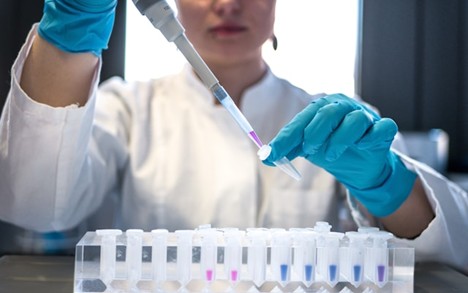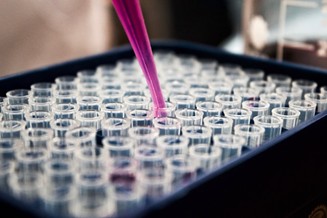
Scientific discovery depends on high-quality tools that allow researchers to observe, manipulate, and understand biological systems with precision. Among the most versatile are research peptides and polyclonal antibodies, which have become essential in life sciences, biotechnology, and pharmaceutical research. These tools enable scientists to investigate complex cellular mechanisms, identify disease markers, and support the development of innovative therapeutic strategies.
Sourcing from the best peptide company ensures reliability and consistency, enhancing the effectiveness of research workflows. When used together, peptides and polyclonal antibodies offer complementary strengths that accelerate discovery and improve experimental outcomes.
Research peptides are short chains of amino acids, synthetically produced to mimic specific portions of proteins. Thanks to advances in solid-phase peptide synthesis, scientists can design and manufacture sequences that represent linear epitopes, functional motifs, or even novel arrangements not naturally found in organisms.
Peptides serve a variety of essential roles in research. They function as immunogens in antigen design, helping generate targeted antibodies. In epitope mapping, peptides assist in identifying the specific regions of a protein that an antibody recognizes. They also act as molecular probes, mimicking structural domains to study protein-protein interactions.
Additionally, peptides are used as positive or negative controls in immunoassays, ensuring both specificity and accuracy. Their versatility stems from their customizability; by selecting precise sequences, researchers can bypass the challenges of expressing or purifying entire proteins, making peptides indispensable in areas where precision is critical.
Polyclonal antibodies are generated by immunizing animals with an antigen. Unlike monoclonal antibodies, which target a single epitope, polyclonal antibodies represent a diverse collection of immunoglobulins that recognize multiple epitopes on the same antigen.
Polyclonal antibodies offer several key advantages in research. Their high sensitivity, resulting from the ability to bind multiple epitopes, enhances signal detection, while their robustness allows them to perform effectively across varied assay conditions and sample types. They exhibit broad recognition, capable of detecting proteins in different conformations or fragmented states and are often quicker and more economical to produce than monoclonal antibodies.
These attributes make polyclonal antibodies highly reliable in techniques such as Western blotting, immunohistochemistry (IHC), immunoprecipitation, and ELISA. Additionally, their broad binding profile makes them particularly useful for detecting proteins expressed at low levels or in partially degraded forms.
While each tool offers unique advantages, their true potential emerges when they are used together. The synergy between peptides and polyclonal antibodies creates a more comprehensive and reliable framework for scientific investigation.
Synthetic peptides are commonly used to generate polyclonal antibodies. By selecting sequences unique to a target protein, researchers can ensure that the resulting antibodies demonstrate high specificity. This is particularly useful when full-length proteins are unavailable or difficult to express.
Peptides provide a straightforward way to test whether antibodies recognize their intended targets. By competing antibodies with their peptide immunogens in assays, researchers can confirm specificity and reduce the risk of cross-reactivity.
Since polyclonal antibodies recognize multiple epitopes, overlapping peptide libraries can identify which sequences are targeted. This mapping reveals critical insights into antibody binding and can guide the design of diagnostic assays or therapeutic antibodies.
Peptides introduce precision into detection workflows, while polyclonal antibodies amplify detection signals. Together, they increase both sensitivity and accuracy, ensuring that results are robust across diverse applications.

The combined use of peptides and polyclonal antibodies accelerates discovery in numerous areas of life sciences.
In proteomic studies, peptides allow targeted analysis of specific protein fragments, while polyclonal antibodies provide broad recognition of proteins across multiple epitopes. This dual approach supports comprehensive protein profiling and biomarker discovery.
Peptides can model protein domains or mimic active sites, making them ideal for screening interactions with drug candidates. Polyclonal antibodies, on the other hand, confirm protein presence and activity in preclinical testing. Together, they streamline the identification of therapeutic targets.
Synthetic peptides act as stable and reproducible antigens for diagnostic assays, while polyclonal antibodies amplify detection signals. This combination is particularly valuable in ELISA platforms designed to detect disease biomarkers.
By generating antibodies against carefully chosen peptide sequences, researchers can probe specific structural regions of proteins. This enables studies into protein folding, domain function, and conformational changes under different conditions.
In tissue-based studies, peptides validate antibody specificity and reduce false positives. Polyclonal antibodies, meanwhile, deliver strong and clear signals, allowing precise visualization of protein localization in complex tissues.
The collaboration between peptides and polyclonal antibodies brings several compelling benefits:
Specificity and Sensitivity: Peptides provide targeted design, while polyclonal antibodies deliver strong signal detection.
Flexibility: Useful across diverse applications, from basic biology to clinical diagnostics.
Efficiency: Reduces the need for full-length protein purification, streamlining workflows.
Adaptability: Can be customized to fit unique research goals, including rare or novel proteins.
Cost-Effectiveness: Provides reliable results without the high costs of other detection systems.
Despite their strengths, combining peptides and polyclonal antibodies requires thoughtful planning. Careful peptide selection is critical, as choosing a sequence that does not accurately mimic the natural protein environment can limit antibody performance.
Researchers must also account for batch variability, since polyclonal antibodies can differ between production runs, although thorough peptide validation can help mitigate this risk. Structural differences pose another challenge: antibodies raised against linear peptides may not always recognize the protein’s folded conformation.
Synthetic peptides require proper storage and handling to maintain stability and integrity. By addressing these considerations through careful experimental design and validation, researchers can ensure optimal results when integrating peptides and polyclonal antibodies.
The future of peptides and polyclonal antibodies lies in their integration with advanced technologies. Bioinformatics tools now enable more precise prediction of epitopes, enhancing the efficiency and specificity of antibody generation. High-throughput screening using peptide libraries accelerates both epitope mapping and antibody validation, streamlining research workflows. Multiplex detection systems further expand capabilities by combining peptide antigens with polyclonal antibodies to simultaneously detect multiple biomarkers. Additionally, integration with mass spectrometry allows peptides to support quantitative proteomics, while antibodies enrich target proteins for detailed analysis. As these approaches continue to evolve, the partnership between peptides and polyclonal antibodies will remain a cornerstone of innovation across life sciences and biotechnology.
Research peptides and polyclonal antibodies have each transformed the landscape of modern science. Peptides provide precision through customizable sequences, while polyclonal antibodies offer robustness and sensitivity through multi-epitope recognition. When combined, they create a powerful toolkit for advanced protein detection, diagnostic development, drug discovery, and beyond.
By bridging precision with sensitivity, peptides and polyclonal antibodies accelerate the pace of discovery. Their continued integration into cutting-edge research ensures that scientists can unravel complex biological systems with greater clarity, paving the way for breakthroughs in biotechnology, medicine, and life sciences.